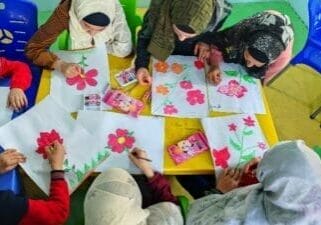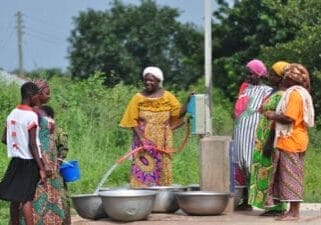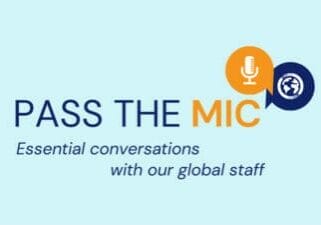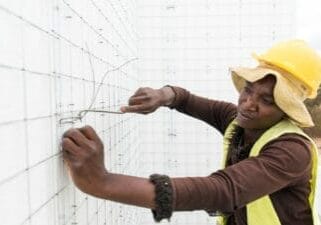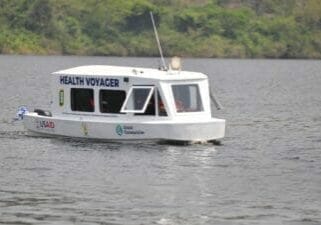News > Blog
Local Solution to Improved Transparency in Responsible Minerals Trade in Congo’s Ituri Province
Published 04/18/2022 by Global Communities

How USAID’s Zahabu Safi (Clean Gold) Project is strengthening local civil society to carry out due diligence through a new information management platform
By Kevin Eze
Patrick, Guy and Yves* are lawyers from the city of Bunia in the Ituri province of the Democratic Republic of the Congo (DRC) who work for Justice Plus, a Bunia-based civil society organization specializing in human rights promotion and community stabilization in conflict-affected areas in eastern Congo.
Justice Plus operates as a local implementing partner in identifying and monitoring risks associated with illegal gold mining and trading in “red zones” — dangerous areas where armed groups are active. This work is a critical component of the U.S. Agency for International Development’s Zahabu Safi (Clean Gold) Project. Made possible due to the support of the American people through USAID and implemented by Global Communities, the project helps the Congolese Government in its effort to formalize the artisanal and small-scale mining (ASM) sector and attract ethically conscious jewelers to source responsibly from DRC.
Armed groups thrive on the informal nature of the ASM sector. For example, in 2020, official figures state that the entire Ituri province produced 30 kilograms of gold, when Justice Plus reveals some sites produce that much in a few months. Nearly 98 percent of artisanal gold is exported illegally to neighboring countries, and getting through the bureaucratic process to obtain a local trade license is complex and costly (approximately $400 USD).
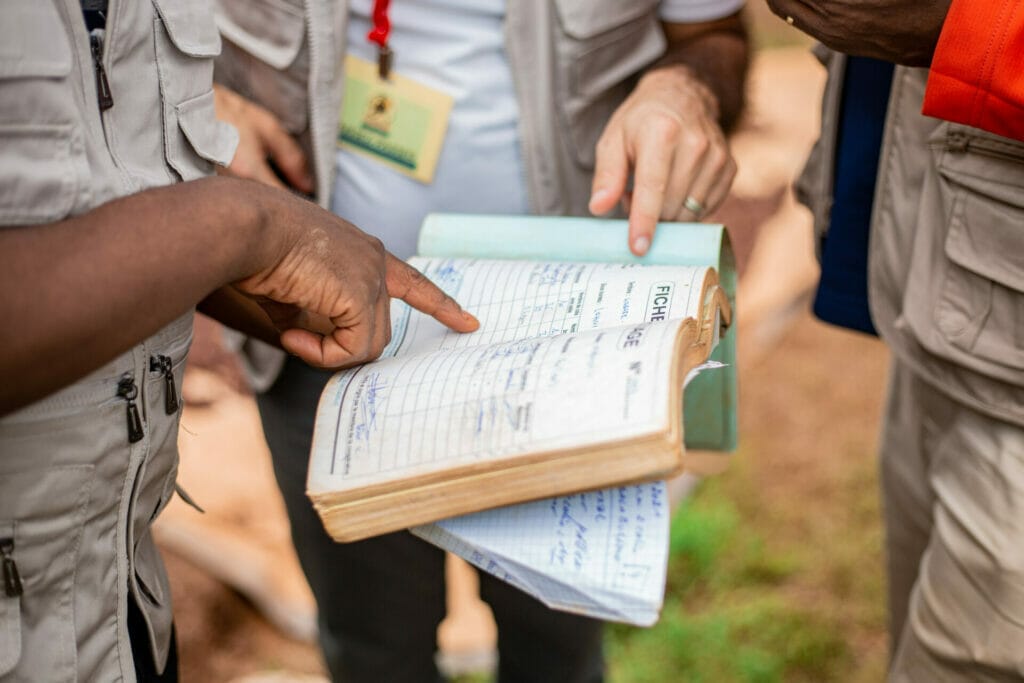
Clean Gold Requires Reliable Information
As part of USAID’s Zahabu Safi (Clean Gold) Project, implementing partners Better Chain and Justice Plus use DataStake, a near real-time information management platform, to collect, verify and digitally compile information on the artisanal gold supply chains in the Ituri province of the Democratic Republic of the Congo.
However, not all artisanal mine sites in DRC are plagued by the presence of armed actors, nor should be categorized as high risk by potential international buyers. Unfortunately, international buyers often have limited tools to get precise information on mine sites, and too often artisanal gold sourced from Congo is viewed as risky. The perceived level of risk associated with sourcing ASM gold from DRC has created serious reputational damage and a stigma, which makes it difficult for ASM cooperatives and communities to export artisanal gold to reputable international buyers.
As part of USAID’s Zahabu Safi (Clean Gold) Project, Justice Plus and BetterChain use DataStake, a near-real-time information management platform sponsored in DRC by the Project. Using DataStake, Justice Plus collects, verifies and digitally compiles information on various artisanal gold supply chains in Ituri, in accordance with the Organisation for Economic Co-operation and Development (OECD) Due Diligence Guidance for Responsible Supply Chains of Minerals from Conflict-Affected and High-Risk Areas.
“DataStake helps to reduce fraud in the opaque minerals sector and reinforces transparency and international compliance.”
Xavier Macki – Executive Secretary, Justice Plus
DataStake facilitates structured data reporting on locations (mine sites, mining villages, trading centers); stakeholders in the gold supply chain (cooperatives, traders, exporters, state agencies); events (security and mining incidents, capacity building sessions); and local information relays, which together provide a comprehensive risk management solution for the province. The platform allows civil society actors to contribute to risk reporting at local mine sites.
In early 2021, while Justice Plus was navigating mining sites on a data collection trip, the government declared Ituri a red zone. Patrick, Guy and Yves immediately abandoned their vehicles and other visible signs of identification. The trio camouflaged themselves to avert dozens of armed groups working to eliminate competitors in the ASM supply chain and site-based risk monitoring officers. When conflict erupts, the Justice Plus team leans on their network of local information relays to protect themselves and communities.
“We never give up,” Patrick said.
By consolidating the information shared by their local information relays in DataStake, Justice Plus has been able to provide regular insights into risks present at ASM communities in a province still suffering from ongoing ethnic conflict. As a result, Justice Plus has gained prominence and is now frequently invited to meetings with provincial authorities. Patrick, Guy and Yves provide firsthand information on artisanal mining activities in Ituri and correct false reports, when necessary.
“We are seen as authentique because of the data collection system,” Guy said. “When we began, we did not understand how we would benefit from this.”
Today, DataStake contributes to the identification and mitigation of the potential for fraud and provides transparency and a clear chain of custody (traceability) to support responsible sourcing of minerals, particularly from conflict-affected and high-risk areas. Through DataStake, international buyers have a source of verified information available to them, which is essential when deciding whether to purchase eastern Congo gold. By placing the platform in the hands of credible, local organizations monitoring the mining sector, like Justice Plus, USAID’s Zahabu Safi (Clean Gold) Project is helping support the long-term sustainability of its due diligence and risk mitigation activities.
“I’m persuaded that this platform will help us attain conflict-free reputation on the international market,” said Fabrice, a gold exporter who uses DataStake.
*All names of individuals in this story have been changed for security reasons.
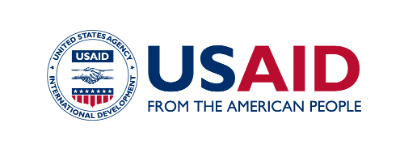
This success story is made possible by the generous support of the American people through the United States Agency for International Development (USAID). The contents are the responsibility of Global Communities and do not necessarily reflect the views of USAID or the United States Government.

